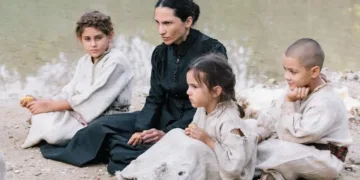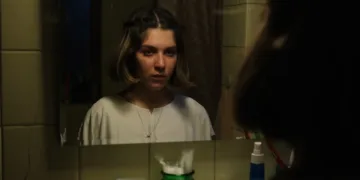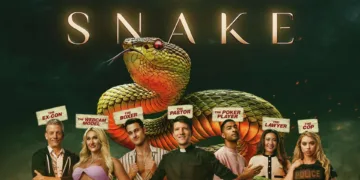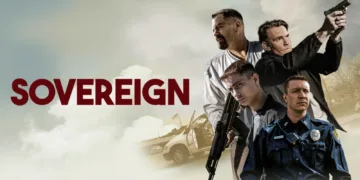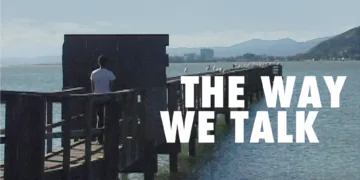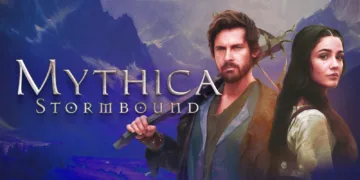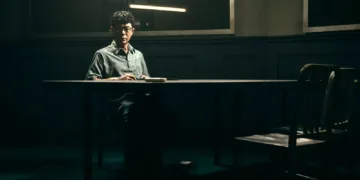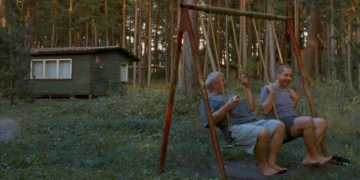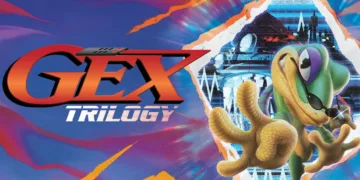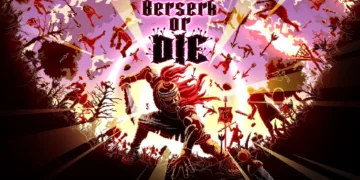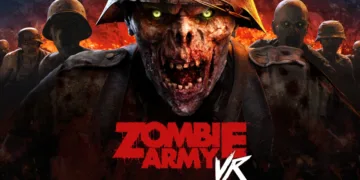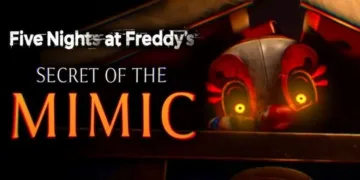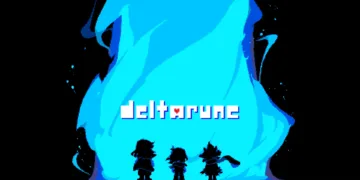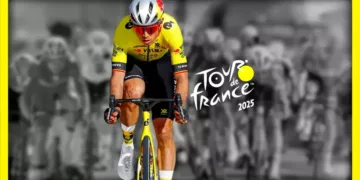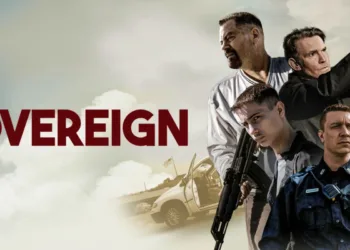There is a universal quest for connection, a desire to find someone who sees you. For Aaron, a hopeful romantic weary from a string of fleeting encounters, that search feels like a game he keeps losing. Spark drops us right into his world as a whimsical birthday scavenger hunt pairs him with the handsome but emotionally distant Trevor.
An undeniable charge passes between them, but their first night together triggers an unexpected glitch in reality: Aaron wakes up to find he is living the same day over and over. The film immediately poses a question that feels like a classic narrative puzzle.
The goal isn’t just to escape the loop, like clearing a level. Instead, Aaron must use this repeating cycle to decipher the enigma that is Trevor and, more importantly, to confront the self-defeating patterns that have defined his own search for love.
The Player, The Puzzle, and The Guide
The film is held together by three stellar performances, each providing a different kind of emotional weight. Theo Germaine is the story’s anchor as Aaron, delivering a performance that is messy, imperfect, and deeply human. Germaine expertly navigates Aaron’s emotional arc, which mirrors that of a player in a challenging roguelike game.
He begins with hope, then shifts to a strategic mindset, trying to “game” each conversation. As his efforts fail, we witness a raw frustration that gives way to despair, and finally, to a necessary self-reflection. Germaine makes every reset feel impactful. Danell Leyva gives Trevor a texture that prevents him from being a simple romantic object; he is the game’s most difficult puzzle. Leyva’s performance shines in its subtlety, conveying a deep internal conflict through guarded body language and fleeting expressions of pain that break through his charismatic armor.
He is the compelling “boss” whose patterns must be learned not through aggression, but through empathy. Finally, Vico Ortiz is a standout as Dani, Aaron’s roommate. Ortiz brings a sharp, vibrant energy that acts as a vital counterpoint to the often-claustrophobic nature of Aaron’s loops.
Dani is the essential guide, the supportive character whose practical advice and exasperated concern highlight the self-destructive nature of Aaron’s quest. Their dynamic friendship forms an emotional pillar, grounding the story in a reality outside the central romantic obsession.
The Mechanics of The Heart
Like many great narrative-driven games, Spark uses its central mechanic—the time loop—to explore something much deeper than the gimmick itself. The repeating day becomes a powerful metaphor for the toxic relationship cycles we can fall into.
Aaron’s initial strategy is a perfect illustration of this: he tries to find the perfect dialogue choices and actions, essentially attempting to use a walkthrough for intimacy. The film powerfully argues that this approach is doomed. Real connection cannot be manipulated or “won”; it requires a vulnerability that Aaron is initially unwilling to show.
This subverts the power fantasy often seen in time-loop stories. Instead of becoming a master of his universe, Aaron must learn to relinquish control. The film’s other great strength is its handling of identity. By presenting its queer, trans, and non-binary characters without making their identity a source of plot conflict, the story allows them to be complex individuals defined by universal human desires and flaws.
This is a sign of maturing storytelling, moving beyond stories about identity to stories with characters whose identities are an authentic part of their whole being. It makes their struggles with love, regret, and self-acceptance more potent and relatable to anyone who has felt stuck in their own life.
A Narrative That Unfolds and Unravels
Spark skillfully plays with genre expectations, a feat that keeps its narrative fresh and engaging. It draws you in with the familiar feel of a light romantic comedy, but with each repetition of the day, it steadily weaves in darker, more dramatic threads.
The tone shifts, and the loop begins to feel less like a whimsical opportunity and more like a psychological prison. This evolution is reflected in the filmmaking, as once-hopeful scenes become tinged with a sense of dread. The story’s deliberate slow-burn pacing is a brave choice that pays off handsomely. By withholding key information about Trevor’s past and the loop’s origin, the film places the viewer directly into Aaron’s confused and desperate perspective.
This approach demands patience, much like atmospheric mystery games where the emotional reward comes from gradual discovery. When the final reveals arrive, they land with incredible force, re-contextualizing the entire story.
The ending itself avoids a tidy resolution. It answers the plot’s central mystery but leaves the characters’ emotional futures ambiguous. This thoughtful choice elevates the film, forcing the audience to grapple with its central themes long after the credits roll. It’s a narrative decision that values lasting resonance over simple satisfaction.
Spark premiered on May 24, 2024 at the Inside Out Film Festival in Toronto and had a North American release on June 10, 2025, via Freestyle Digital Media.
Full Credits
Director: Nicholas Giuricich
Writer: Nicholas Giuricich
Producers and Executive Producers: Nicholas Giuricich, Jackson Giuricich, Lesley Lopez; Executive Producer Lisha Yakub Sevanian
Cast: Theo Germaine, Vico Ortiz, Danell Leyva, Christina Villa, Abigail Achiri, Jason Caceres, Nancy Nave
Director of Photography (Cinematographers): Tamiah Bantum, Mathew Young
Editors: Nicholas Giuricich, Peter Frintrup
Composer: Maxton Waller
The Review
Spark
Spark transforms the familiar time-loop premise into a thoughtful and emotionally resonant exploration of intimacy and self-sabotage. Buoyed by three fantastic performances and a script that intelligently uses its central mechanic to deepen its characters, the film is a poignant indie gem. It successfully blends romance with psychological drama, creating a story that lingers long after the credits.
PROS
- Three powerful and complex lead performances.
- An intelligent script that uses the time-loop device to explore relationship cycles.
- Authentic representation of queer and trans characters without making it the central conflict.
- A compelling blend of romance, drama, and psychological thriller elements.
CONS
- The slow-burn narrative may test the patience of some viewers.
- Its ambiguous ending might not satisfy those seeking a clear resolution.













